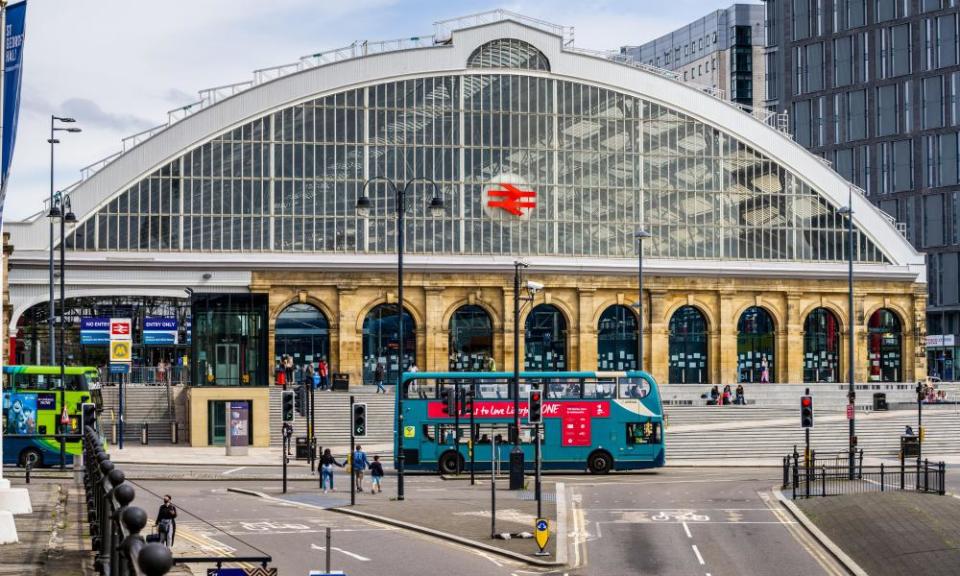UK rail passengers down 3m on last year despite return to office plea

Three million fewer passengers travelled on Britain’s trains on Tuesday than a year ago, with only a slight increase in commuters rather than the widespread post-Covid return to offices that the government had urged.
Figures from train operators indicated that total journeys were just 38% of the equivalent day in 2019, a proportion that had been steadily increasing over the last two months but is only marginally higher than last week. An average 5 million passengers a day were travelling by rail in late 2019.
Network Rail said footfall in its managed stations, the busiest in London, England and Scotland, was 6% higher than the same day last week but still 60% lower than usual.
Separate figures for transport use last week, published by the Department for Transport on Wednesday, showed train journeys on Monday 24 August at 38% of 2019 levels (averaging 33% for the rest of the working week, in provisional figures that are expected to be revised upwards).
The train operators’ figures are consistent with data from Transport for London on Tuesday that showed only a negligible increase in tube and bus journeys in the capital, amid increasing concern for the economy and future of cities, with Britons lagging behind other countries in returning to the office.
default
In the Canary Wharf financial district of London, and Manchester’s Spinningfields, the start of the post-bank holiday working week brought a “trickle, not a torrent” of employees making it back into offices.
The rail industry is regarding next Monday, 7 September, as a key marker, a day when more train services will be restored, including a full timetable in some commuter networks, after many operators ran a reduced service during the lockdown.
There is growing pressure to overhaul rail fares, as part-time working makes season tickets unviable, while the cost of individual peak-time tickets is a prohibitive daily expense for many living in commuter belts. The prime minister, Boris Johnson, told the Commons that the government was “working at pace with rail companies to try to deliver new products in terms of ticketing that would ensure better value and enable people to get back to work in a flexible way”.
Most train operators remain locked in negotiations with the DfT over the renewal of emergency agreements, due to expire later this month. The government suspended franchises in March after advising the public, apart from key workers, to stay at home and avoid public transport due to the pandemic. The Treasury expects to have spent an additional £3.5bn by September 21 in underwriting the rail network.

 Yahoo Finance
Yahoo Finance 